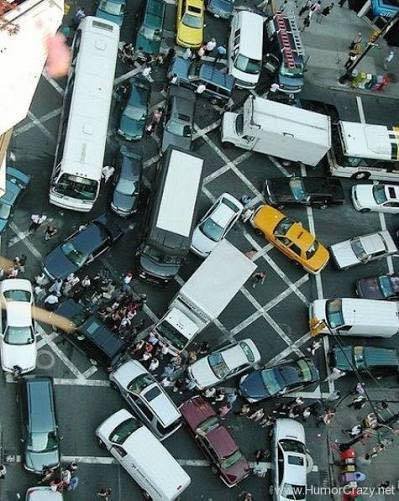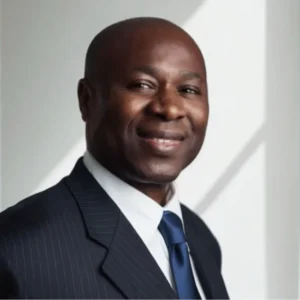Ghana’s Core Challenge: Beyond Corruption to Disorganization
Ghana’s foundational problem is not merely corruption or flawed policy; it is profound disorganization at the very core of social life. Economists might politely term this “institutional weakness,” but that phrase understates the reality. What Ghana truly faces is a fundamental failure of social order – a collective inability to establish and adhere to clear rules, standards, and systems that govern everyone equally.
This systemic breakdown manifests in everyday life. When a Ghanaian seeks employment, the first instinct is often to leverage familial connections. When a business needs a contract, it seeks a political sponsor. These actions are not necessarily moral failings; rather, they are rational responses within a society where formal, merit-based systems are often ineffective. However, when personal connections overshadow competence as the primary organizing principle, society inevitably rewards loyalty over ability, thereby stifling excellence and progress.
This inherent disorganization explains why Ghanaian firms frequently fail to outlive their founders. The inaugural generation builds enterprises through sheer grit and charisma, but the lack of an architectural system for continuity often leads to collapse during succession. Across Sub-Saharan Africa, a mere 20–25% of family businesses survive into the second generation, a stark contrast to 40% in East Asia and 50% in developed economies. This disparity is not a reflection of intelligence; it is a clear indicator of organizational deficiency.
The First Law of Organization: Establishing Standards
Contents
For Ghana to break free from this cycle of chaos, it must begin with the most fundamental building block of social order: standards.
Standards are the unwritten, yet deeply ingrained, codes that dictate societal behavior: defining what is acceptable, what constitutes excellence, and what falls below collective expectations. They are the invisible frameworks that enable millions to operate cohesively without constant, direct supervision.
In Ghana, these standards have eroded significantly. A prime example is Parliament itself. What ought to be a revered symbol of national order frequently devolves into a theater of self-indulgence. Members parade in cultural attire – kente, agbada, kaftan – not as expressions of unity, but often as declarations of individual exceptionalism. Each outfit, in this context, subtly declares: “I am not bound by the rules; I am the rule.”
This very spirit permeates other facets of society: the convoys that flagrantly violate traffic laws with blaring sirens, public officials who treat state funds as personal spoils, and contractors who build infrastructure of questionable utility. All these phenomena are symptomatic of a pervasive culture of exceptionalism. When everyone operates by their own exception, the entire system inevitably buckles under the weight of its own improvisation.
Crucially, standards are not merely about aesthetics; they are intrinsically linked to efficiency. They represent a public good. Much like clean air or public safety, robust standards facilitate cooperation and smooth functioning. Without them, every transaction becomes a complex negotiation, every project an arduous ordeal, and every institution a precarious ticking time bomb.
The Second Law of Organization: Devolving Power and Connecting Markets
The next critical reform Ghana needs is genuine decentralization. To empower companies to overcome these systemic constraints, the government must boldly devolve administrative power away from Accra, the capital.
Entrepreneurship does not thrive in a vacuum; it flourishes in proximity to accessible markets, reliable infrastructure, and responsive public services. Yet, Ghana’s economic geography is severely centralized. All significant authority, financial resources, and regulatory functions emanate from the capital, leaving the vast majority of the country functionally disconnected and underserved.
This centralization creates a profound paradox: local entrepreneurs are encouraged to innovate, yet they operate in environments lacking functional administration, reliable infrastructure, and localized decision-making authority.
Decentralization is not merely a political maneuver; it is a fundamental economic imperative. Villages, towns, and cities require real administrative capacity – empowered councils or managers with the authority to genuinely support local businesses, issue licenses efficiently, enforce standards consistently, and maintain public order effectively.
When citizens experience visible, accountable authority within their own communities – a council that promptly fixes roads, a town manager who registers enterprises without undue delay, a local institution that actively solves problems – they begin to engage as responsible social beings rather than isolated survivalists. This fosters a sense of ownership over their communities.
Regrettably, successive governments have often prioritized grand, symbolic monuments over tangible, horizontal connectivity. Interchanges, cathedrals, stadiums – projects often designed more for historical plaques than for daily productivity – have taken precedence. However, no society has ever developed by erecting cathedrals while neglecting the essential roads that link its villages to its markets.
If Ghana is to truly foster entrepreneurship, it must invest in horizontal connectivity: the local roads, digital infrastructure, and administrative systems that enable commerce to flourish where people actually live and work.
The Third Law of Organization: Aligning the State with Capitalism
Now, for the part that may prove controversial and potentially irk many Ghanaians: the state’s interests must be strategically aligned with those of domestic capitalism.
Skepticism is understandable, given the prevalent mistrust of politicians in Ghana – and often for good reason. However, before dismissing this proposition, consider this: the politician we mistrust is often merely operating within a broken system that rewards personal gain over collective purpose. They are unlikely to voluntarily relinquish this power. The path forward requires a strategic negotiation for power – not in the courts, but in the arena of ideas and institutional reform – to compel the state to serve national enterprise rather than obstruct it.
What is being proposed here is not favoritism or crony capitalism. It is strategic alignment. The state must identify critical national challenges – in agriculture, manufacturing, health, logistics, technology – and then design incentives that genuinely reward domestic companies capable of solving these challenges at scale.
This strategic approach could be spearheaded by a national “thinking center” – a technocratic institution tasked with mapping the country’s strategic opportunities and then coordinating public policy to support Ghanaian firms that are actively addressing them.
State support – whether in the form of tax holidays, subsidized utilities, or import duty exemptions – should never be indiscriminate handouts. Such support must be conditional, competitive, and transparent, extended exclusively to companies (not individuals) that are investing their own capital to tackle pre-identified national problems.
When a Ghanaian company is constructing factories, creating thousands of jobs, or successfully exporting goods, it is generating the kind of social stability that politics alone cannot achieve. Such a company deserves state support – not as patronage, but as a genuine public-private partnership.
The bedrock of this partnership is trust, which must be cultivated on both sides. The more companies commit their own capital and effort, the more they deserve predictable state backing. And the more government operates with transparency and accountability, the more citizens will come to accept that capitalism can, in fact, be patriotic.
The monumental challenge ahead – one that Ghana must tackle with earnestness – is how to forge this partnership in a manner that strengthens social order rather than perpetuates political capture. This is the next frontier of national development.
Standards as Foundational Infrastructure
Stripping away all the peripheral noise, Ghana’s development dilemma boils down to a single point: every transaction carries the hidden tax of mistrust. Standards are the mechanism by which this tax is removed. They are a form of social infrastructure – every bit as vital as roads or power plants – because they enable coordination to occur automatically and efficiently.
When clear standards govern conduct, overall efficiency rises dramatically. Nations like Japan, South Korea, and Singapore all commenced their meteoric ascent by rigorously institutionalizing standards across work, governance, and industry. Ghana’s imperative is to replicate this feat – to consciously replace charisma with competence, and improvisation with enduring order.
Repairing the National Parking Lot
The metaphor of the chaotic parking lot remains profoundly apt. Every driver insists on their own rules, cars block each other indiscriminately, and everyone blames everyone else. When a crisis erupts, the entire lot burns, metaphorically speaking.
The solution is deceptively simple, yet incredibly challenging to implement: paint the lines. Establish clear standards. Devolve authority effectively. Align the state with productive, ethical capitalism. And fundamentally, cease glorifying chaos as a cultural trait.
Development is not a miraculous occurrence; it is, at its core, a rigorous form of discipline.
The Road to Enduring Order
History unequivocally teaches us that nations rise not because their people are inherently superior, but because they meticulously build systems that make good behavior rational and bad behavior demonstrably costly.
If Ghana can successfully rebuild its standards, genuinely decentralize power, and forge a new, robust alliance between the state and legitimate domestic enterprise, then its capitalism can finally mature. This maturity will produce firms that genuinely outlive their founders, create jobs that endure beyond fleeting election cycles, and generate wealth that is measured not in convoys or grand cathedrals, but in widespread prosperity and social stability.
The day Ghana collectively learns to park its cars in orderly, disciplined rows will truly be the day it learns to organize its future.
![NBOSI-01[1] NBOSI-01[1]](https://cloudypos.com/nbosi/wp-content/uploads/sites/59/elementor/thumbs/NBOSI-011-rc3u2ljhmnhjs84d8kcrtfc3b1mya82rhqxld85wl8.png)






